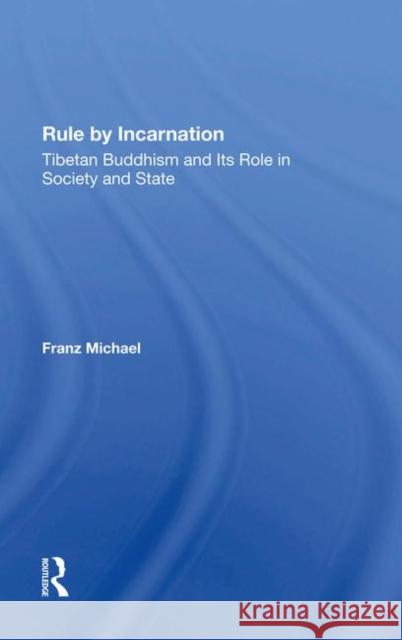Rule by Incarnation: Tibetan Buddhism and Its Role in Society and State » książka
Rule by Incarnation: Tibetan Buddhism and Its Role in Society and State
ISBN-13: 9780367286231 / Angielski / Twarda / 2019 / 227 str.
Rule by Incarnation: Tibetan Buddhism and Its Role in Society and State
ISBN-13: 9780367286231 / Angielski / Twarda / 2019 / 227 str.
(netto: 676,35 VAT: 5%)
Najniższa cena z 30 dni: 654,86
ok. 16-18 dni roboczych.
Darmowa dostawa!
The 1959 Chinese military takeover of Tibet brought an end to a unique way of life in which Buddhism provided legitimacy to political and social authority in Tibet and served as value system, cultural bond, philosophy of life, and framework for a complex political and social order. The religious-political system of Tibet now exists only in the memories of those who experienced it. This book documents the human heritage and cultural traditions of Tibet's singular society as they developed and existed during a period of several hundred years. Using Max Weber's framework of the interrelationship between religious ideologies and the emergence of social, economic, and political systems, Franz Michael and his colleagues analyze the concepts that are central to Tibetan Buddhism and apply them to the Tibetan people, their social and political order, and their way of life. Much of the study is based on interviews with Tibetans in exile-from incarnations and highly placed ecclesiastical and secular government leaders to farmers, herdsmen, and housewives. The result is important not only as the record of a culture, but also as it is related by the authors to the broader issue of the modernization of non-Western traditional societies.











